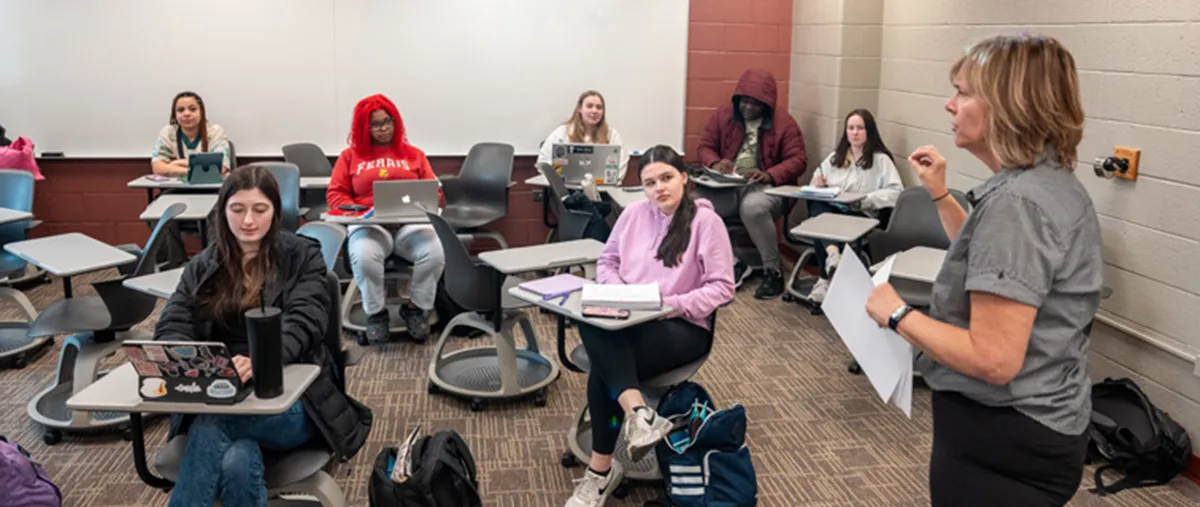October 1, 2025
Ferris State’s Master of Social Work program awarded $2.4 million grant to bolster vital talent pipeline to underserved communities

Ferris State University’s Master of Social Work program has been awarded a four-year, $2.4 million grant from the U.S. Health Resources Service Administration’s Behavioral Health Workforce Education and Training Program to deepen its commitment to improving behavioral healthcare outcomes in underserved rural communities throughout Northern Michigan.
The grant will be used to establish the Empowering Northern Michigan: Behavioral Education in Diverse Rural Communities fellowship, aimed at removing barriers to MSW students’ success while further strengthening the program’s connection to rural areas of the state facing a chronic shortage of qualified mental health workers.
“Historically, there has been a social work ‘brain drain’ dynamic in these areas, where folks from a small town earn their degree and then move to bigger urban centers,” said Dr. Michael Berghoef, a professor in the MSW program who steered the grant application process. “Too few graduates are returning to practice in the kinds of communities they were raised in.”
Berghoef and his colleagues have been working hard to change that in Michigan. They see the federal grant funding as an exciting opportunity to build on the MSW program’s longstanding efforts to fuel grassroots solutions to the problem.
“Ferris State is uniquely positioned to respond to the programmatic purpose of this grant because of how the MSW program is already both embedded and invested in the success of high-need and high-demand areas,” Berghoef said. “We’re focused on driving change where it's needed most, and we have a proven record of attracting and educating students who share that commitment based on their own lived experiences.”
Many MSW students come to Ferris State from the very same rural communities the program aims to support, and the program’s integrated, real-world learning environment keeps them closely connected to those areas throughout their education. As a result, 73.4% of graduates in the last two years alone have headed right back into underserved Michigan practice settings to begin their careers.
The EMN fellowship will empower even more graduates to make an immediate difference in their own backyards. More than half of the grant funds will be used to provide individual stipends of $25,000 to 52 full-time advanced standing MSW students—13 per year over the four years of the grant—as they undertake guided internships at a select group of local agencies in underserved areas as part of their final practicum placement coursework.
Grant funds will also be utilized to support the agencies themselves. The intent is to help agencies enhance talent recruitment efforts, increase their capacity to provide clinical supervision to EMN fellows and other interns, and update training models to reflect current best practices in trauma-informed care and adapt to remote mental health technology that is changing the way social workers and patients interact.
“It's about leadership development," Berghoef said. “We’re supporting clinicians in these high-need areas who want to make a difference on a broader level and preparing our graduates who will soon be called on to become not just psychotherapists, hospital social workers, and school social workers, but leaders in their own right.”
For more information on the Ferris State University Master of Social Work program, visit the MSW program page.

